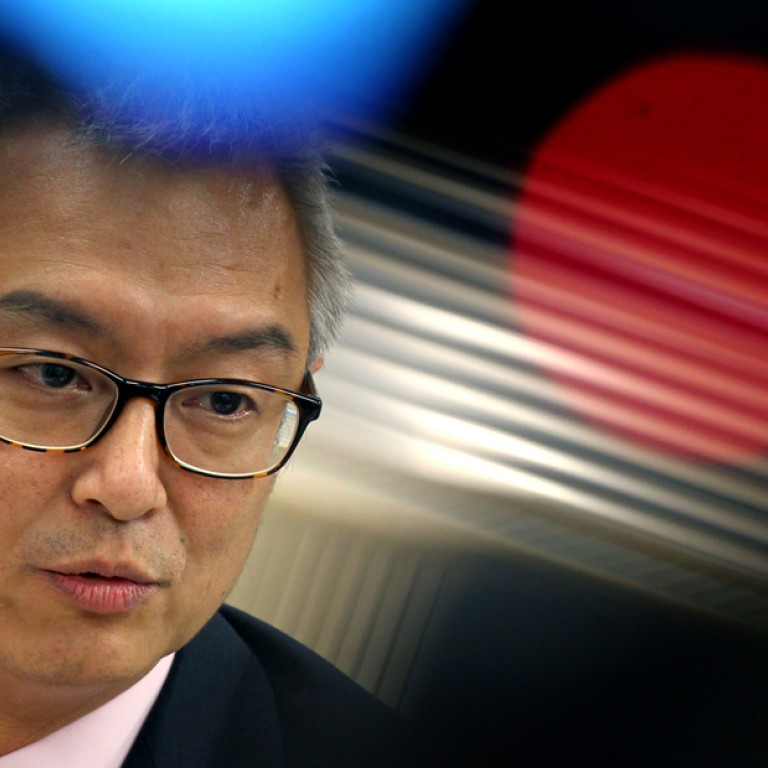
Communications Authority accused of double standards on competition
Economists and lawmakers slammed the government for reassigning the third-generation mobile phone spectrum to encourage market competition, while limiting the number of free-TV licences to avoid excessive competition.
Economists and lawmakers slammed the government for reassigning the third-generation mobile phone spectrum to encourage market competition, while limiting the number of free-TV licences to avoid excessive competition.
The Communications Authority said yesterday the government would take a third of the spectrum from each of the four current operators and put it up for auction.
The authority's chairman, Ambrose Ho Pui-him, in explaining the decision, said the government was keen to encourage market competition.
"We are of the view that this option is more likely to encourage competition and allow new investment to enter the local market. It is more likely to promote innovative services from new 3G spectrum assignees and the incumbents," Ho said.
Susie Ho Shuk-yee, permanent secretary for commerce and economic development, said different policies applied to TV licensing and the 3G spectrum auction and they were entirely different exercises.
The Commerce and Economic Development Bureau released a statement saying essentially the same thing - that different procedures applied to the two exercises and that no submissions to the Executive Council were required concerning the reassignment of 3G spectrum.
But both economist Dr Andy Kwan Cheuk-chiu and Civic Party lawmaker Claudia Mo Man-ching criticised the government for what they said were contradictory policies on competition in the 3G mobile and free-television markets.
The government last month decide to grant only two new free-television licences instead of three on the grounds that having too many operators would be bad for the market.
"It is clearly a double standard," Mo said. She said the government should open the free-television spectrum for auction under the same logic.
Kwan said: "Competition in the 3G mobile market is already very fierce, yet the government intends to introduce new competitors into the fight. But the government has expressed immense fears about adding just another couple of television licensees."
He said the government should never judge market outcome or intervene except when it deals with a new industry.
But Dr Terence Chong Tai-leung, a professor of economics at Chinese University, said the government's two decisions showed consistency to an extent.
"Both the spectrum reshuffling and the television licence cap would give certain protection to existing players in the respective markets," said Chong.
The lawmaker for the information technology sector, Charles Mok, slammed the delay in issuing a consultancy report, which left no room for negotiation by existing 3G operators.
"It has been almost three months since the report was completed on August 29, but the authority didn't publicise it until after the announcement," Mok said. He said the operators had been left with no way to object to the conclusions except by lodging a judicial review.
The Consumer Council said the authority should collaborate with the network operators to minimise the impact on consumers.

